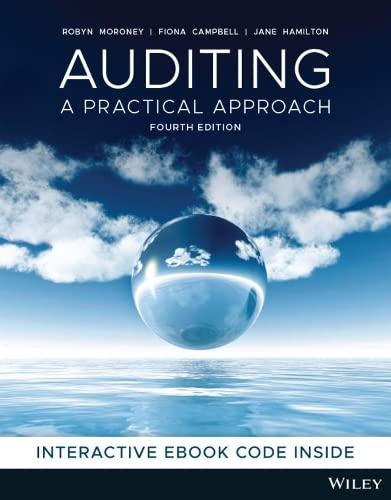Question
1. What is its present worth? Graph the cost and margin per unit by year. If the company has an inflation-independent alternative with NPV(18%) of

1. What is its present worth? Graph the cost and margin per unit by year. If the company has an inflation-independent alternative with NPV(18%) of $8m, how much does the base inflation rate have to increase to recommend against this project?
2. Alternatively, the company can finance $18 Million of the initial investment (5 annual payments at 12.5%). Based on net present value analysis, which approach (pay cash as in #1, or finance as in #2) do you advise them to take? What interest rate would make these alternatives equivalent?
3. The company ultimately chooses to finance the purchase as described in part 2, but is concerned about market volatility. Use a 2D data table to perform sensitivity analysis on +/- 20% changes to selling price and the material cost. Graph the results. What recommendations do you give the company based on this analysis?
4. Assume the company imports 20% of the parts material from Germany and 12% from Canada, and that the related costs fluctuate based on the US-German and US-Canadian exchange rates. Use data from the last 6 years to estimate distributions for both exchange rates over the life of the project. Starting from your work in part 2, create a new model with variable material costs. Use Monte Carlo simulation to estimate the results. Provide a histogram and descriptive statistics based on 250 samples of the output distribution.
Scenario FX, Inc. is a volume manufacturer of high technology automotive mirrors (including cell link and voice activation). FX is looking to expand their operations to add a second product line capable of producing 1.25 Million units per year. The total estimated investment cost for the new line is $25 Million, with a salvage value equal to 20% of the purchase price at the end of the 6 -year project life. The annual expected sales volume is shown below, in thousands of units: The average selling price is fixed for the project life at $125 per unit. Variable costs (per unit) include $35 for materials, $20 for manufacturing, and $18 for labor. There are additional fixed operating and maintenance costs totaling $14.25 Million per year. The company's working capital calculations are based on a 2.5 -month supply of raw materials and 1.5 months of combined inventory (WIP and finished goods) that it maintains to balance overall industry demand. FX has a federal tax rate of 23% and a state tax rate of 8.75%. FX uses a MARR of 18% for all economic analyses. Inflation is expected to increase the variable and fixed costs by 6.4% after the first year. In years 3 6 , inflation is expected to decline by 1.2% each year. In other words, year 2 inflation is 6.4%, year 3 is 5.2%, etc. The project falls under a 7-year MACRS class life
Step by Step Solution
There are 3 Steps involved in it
Step: 1

Get Instant Access to Expert-Tailored Solutions
See step-by-step solutions with expert insights and AI powered tools for academic success
Step: 2

Step: 3

Ace Your Homework with AI
Get the answers you need in no time with our AI-driven, step-by-step assistance
Get Started


